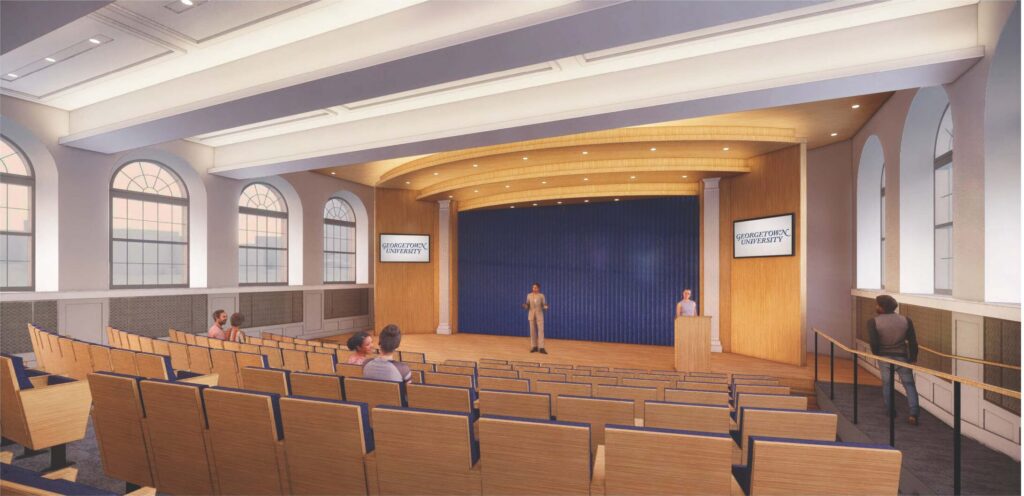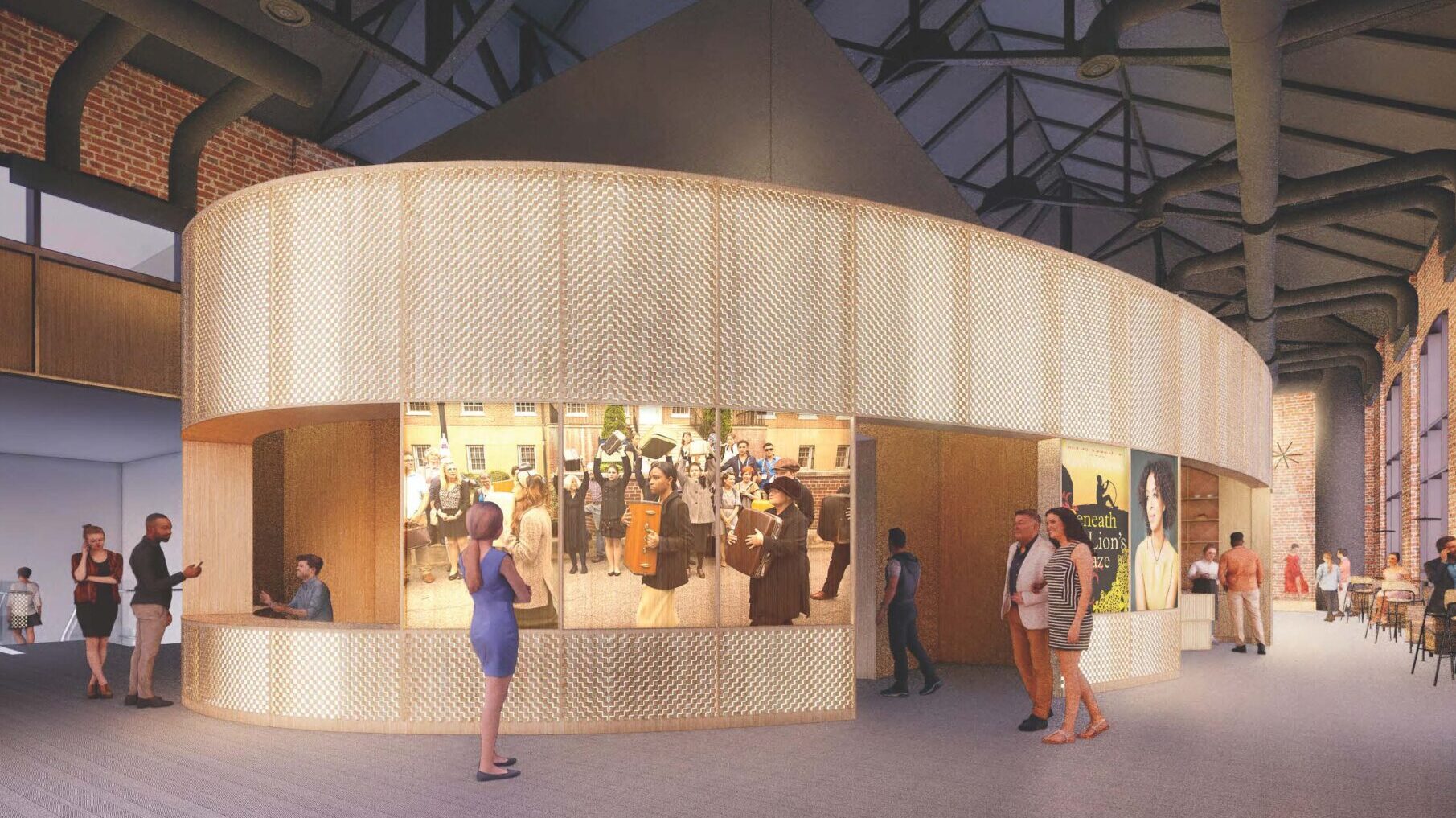A Home for the Humanities on Campus
Professors Nicoletta Pireddu (Inaugural Director of the Georgetown Humanities Initiative), and Derek Goldman and Anthony R DelDonna (Department of Performing Arts) have been awarded a $750,000 grant by the National Endowment for the Humanities to create a humanities hub on campus. The funding will help expand humanities research, pedagogy, and public programming through renovations to the McNeir Auditorium and the lobby of the Davis Performing Arts Center.
The “Creating an Arts and Humanities Hub at Georgetown University” project will renovate McNeir Auditorium and the adjacent Davis Center Lobby to serve as a focal point on campus for arts and humanities activities and programming offered by the Georgetown Humanities Initiative.
The grant, part of $33.17 million allocated to humanities projects across the country by the NEH, will supercharge the Humanities Initiative as it facilitates interdisciplinary partnerships on campus.
“The work of the humanities is very comprehensive, very holistic. We examine complex problems, we transcend sectorial knowledge, we connect disparate disciplines,” explains Pireddu. “The trick is to make this work accessible to a wider audience and to explore how complex problems can be tackled better with people from a variety of backgrounds.”
Centering the Humanities in Uncertain Times
The Georgetown Humanities Initiative, officially launched in January 2020, serves as a catalyst for research, pedagogical innovations, and public facing activities in the humanities on the Georgetown campus. Unbeknownst to faculty, stakeholders and students at the time was just how essential the humanities would become in surviving the coronavirus pandemic. Around the world, these disciplines enabled isolated individuals to cope with unprecedented challenges.
“People turned to the humanities, to stories and art that could give sense and perspective to this incredibly difficult, tragic situation,” reflects Pireddu. “Consolation and solace were found in the arts.”

A rendering of the renovated McNeir Auditorium.
The Humanities Initiative provides programming to confront difficult questions at the center of education. This spring, the initiative hosted a conversation with renowned experts and practitioners in the fields of physics, psychology and art to tackle the uncertainty inherent in human existence.
The planned renovations of McNeir and Davis Lobby will address the substantive functionality of both spaces and, as a result, expand on their present utilization, creating an Arts and Humanities Hub as the first step toward the long-term vision of a full-fledged Humanities Center that is part of Georgetown’s comprehensive capital campaign.
“NEH is proud to support these exemplary education, media, preservation, research and infrastructure projects,” said NEH Chair Shelly C. Lowe (Navajo) in a press release. “These 245 projects will expand the horizons of our knowledge of culture and history, lift up humanities organizations working to preserve and tell the stories of local and global communities, and bring high-quality public programs and educational resources directly to the American public.”
The fully refurbished and re-equipped McNeir Auditorium and Davis Center Lobby will serve as spaces where multidisciplinary arts and humanities activities can flourish. In these spaces, Georgetown will significantly expand the range of program offerings and will be able to reach new audiences by adopting different modalities to convey content (e.g., streaming and archiving events with the introduction of appropriate A/V equipment) while strengthening interdepartmental partnerships and forging new relationships.
“When we’re facing complex problems, the ability to rationalize and empathize and imagine are essential,” says Pireddu. “There has been a crisis of imagination in the past few years – reality became stranger than fiction. While fiction is a construction, it can tell the deepest truths about humanity as a whole. In my view, precisely now is when the humanities need to be put at the center of our education. They give us the skills to interpret, to understand, to contextualize and to survive.”
